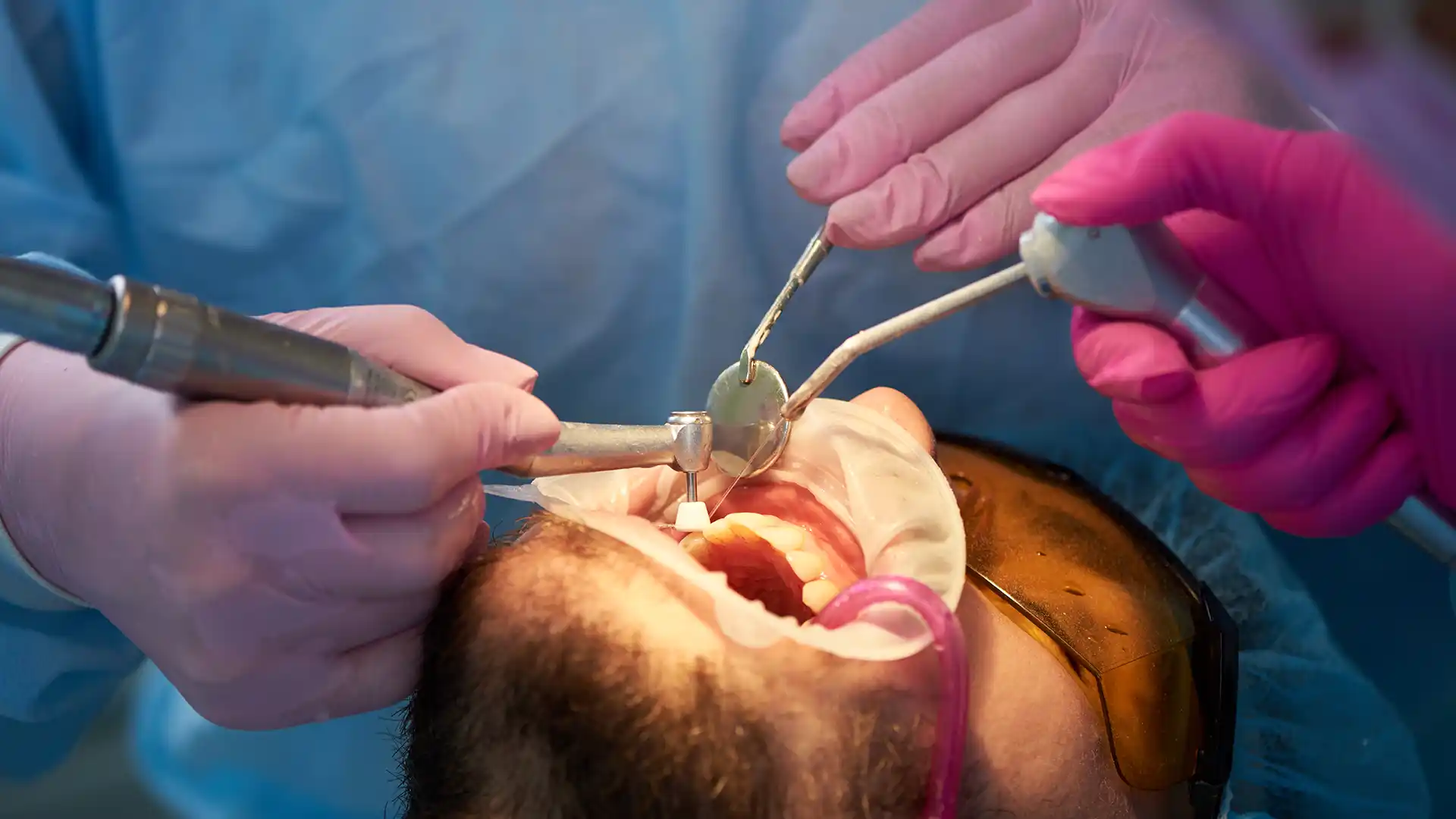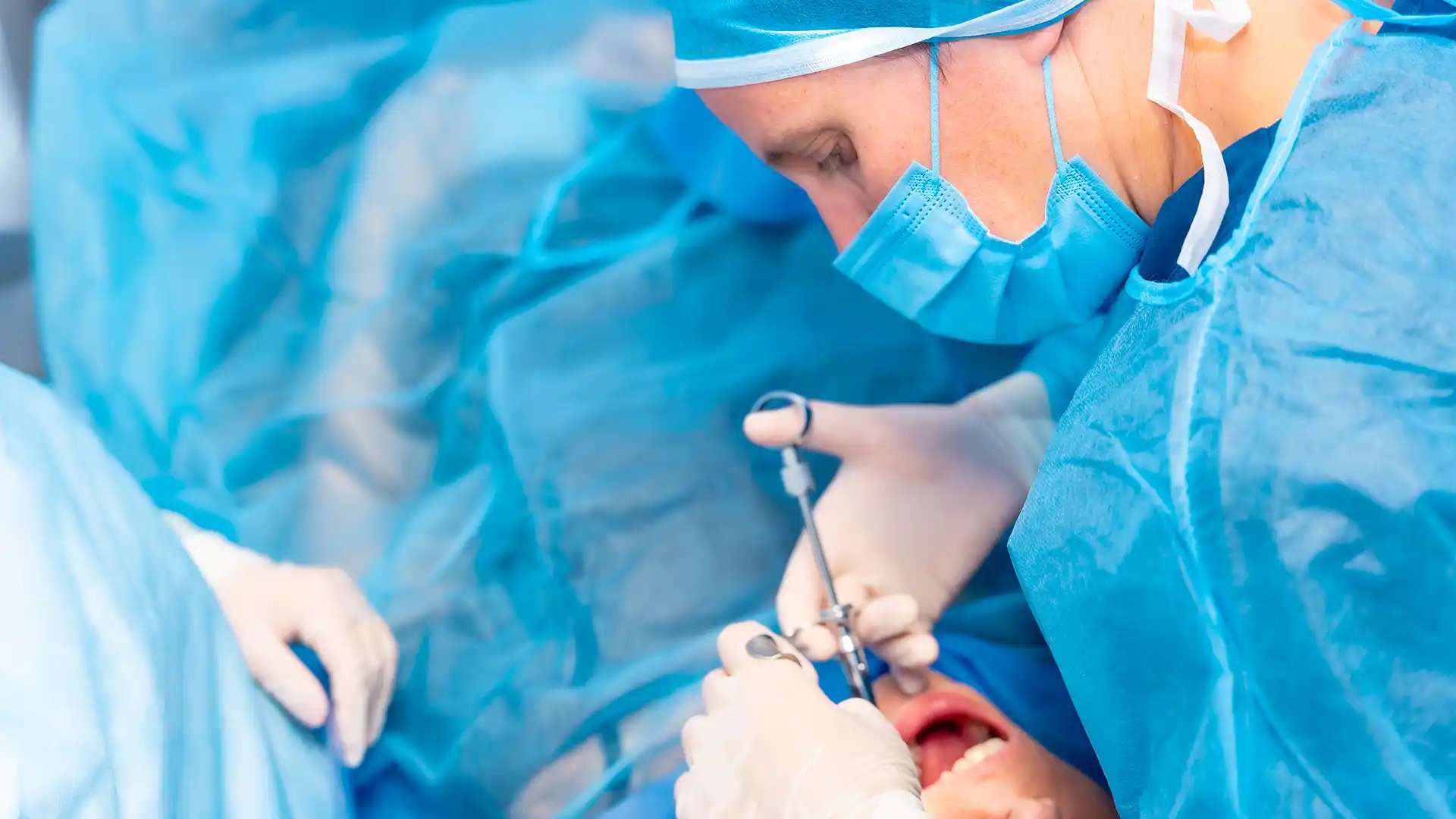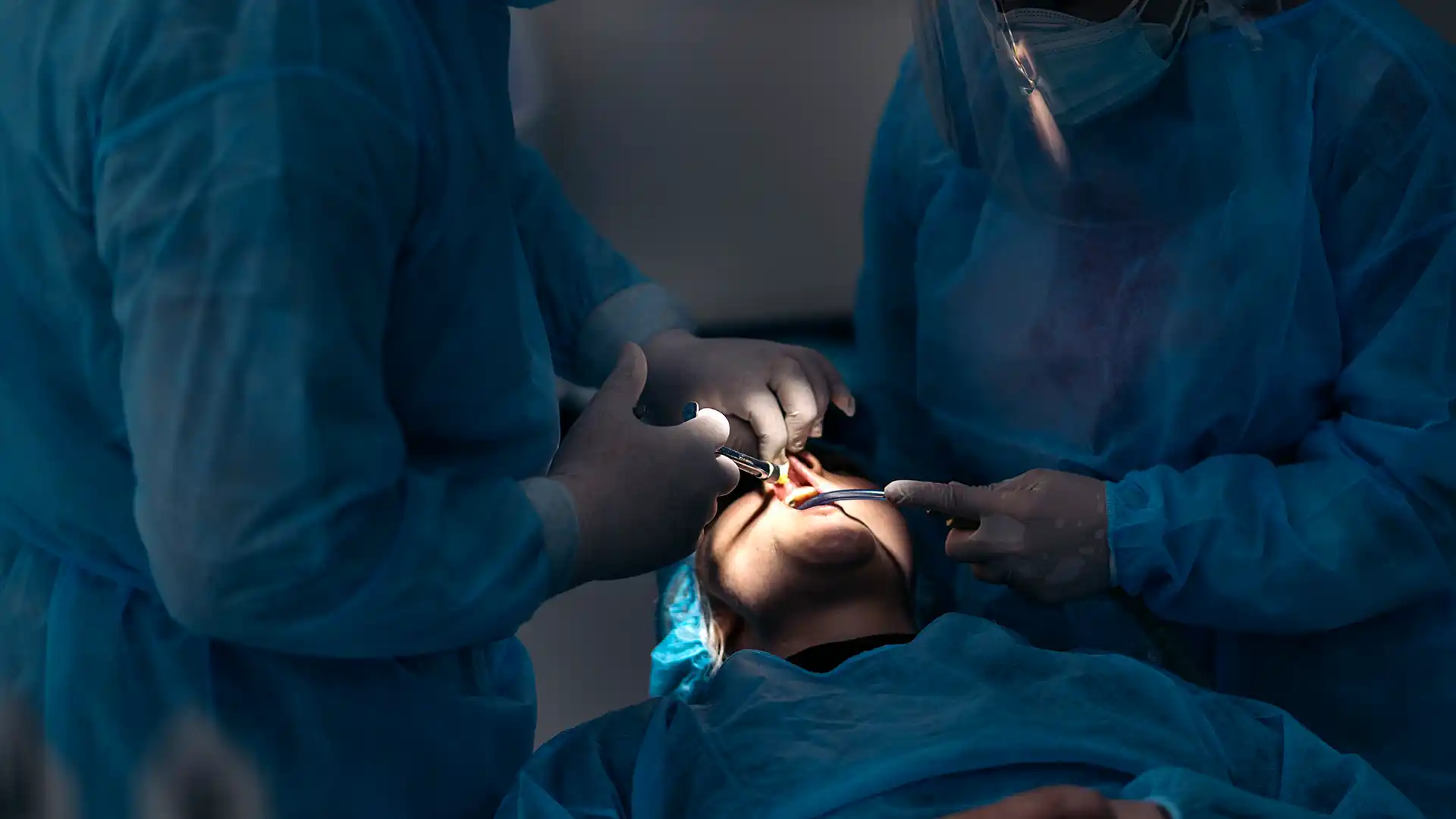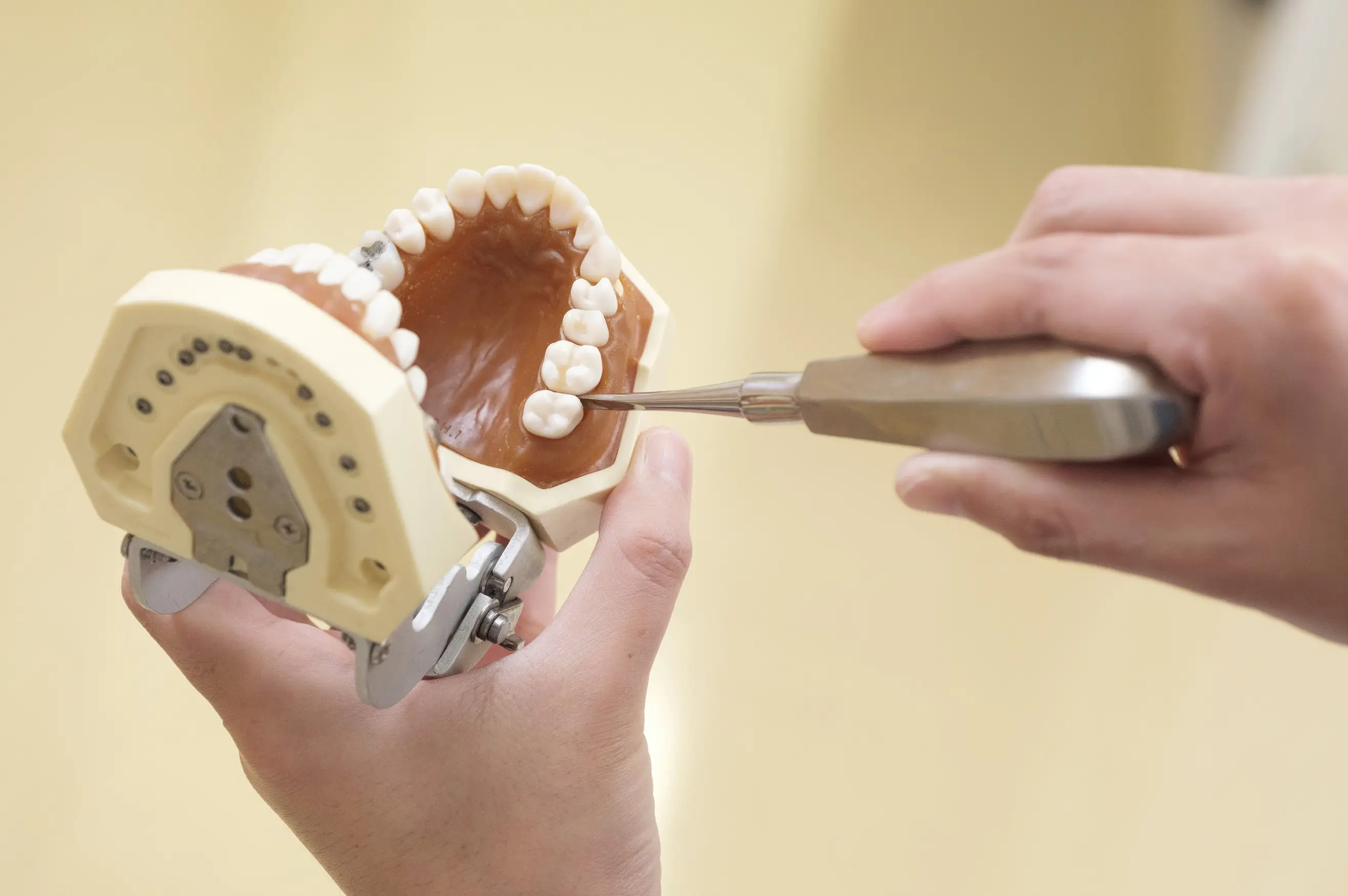Jaw Surgery
Jaw Surgery in Turkey 2025
Jaw surgery in Turkey offers advanced treatments to correct jaw alignment, improve function, and enhance facial appearance. Learn about types of jaw surgery, preparation, recovery, costs, side effects, and before-and-after results.
Table of contents:
- What is jaw surgery?
- Why is jaw surgery done?
- How to prepare for jaw surgery?
- How does jaw surgery work?
- What are the most common types of jaw surgeries?
- Jaw surgery recovery
- Post-instruction after jaw surgery
- Jaw surgery side effects
- How much does jaw surgery cost in Turkey?
- Jaw surgery before and after
What is jaw surgery?
The jawbone surgery also known as orthognathic surgery, is done in the situation where your jaw bones are not aligned in the right way. This surgery tries to improve the normal function of your jaws and teeth which would involve chewing and speaking. There are some cases where it can even make you look better by enhancing facial appearance.
This type of surgery would generally be chosen if simply using orthodontic treatment is not enough for correction of jaw problems.
Why is jaw surgery done?
Jaw surgery is done because of different reasons that will improve both the functional and aesthetic aspects of your face and oral function:
-
Chewing and Speaking: Jaw surgery can help you achieve proper alignment of the jaws, which in turn will make biting, chewing, swallowing, and speaking functions more efficient.
-
Teeth Protection: By ensuring that the jaws are properly aligned, it helps to minimize tear and wear on your teeth.
-
Bite Correction: Jaw surgery can address various bite problems like open bites, jaw surgery for underbites, jaw surgery for overbites, and crossbites.
-
Bringing balance to facial asymmetry or underdeveloped chins by enhancing the overall aesthetic appearance.
-
Achieve better lip closure which in turn increases comfort and may be able to alleviate pain from temporomandibular joint disorders (TMJ) along with other jaw problems.
-
Restore the normal function on facial injuries including restoring birth defects or treat sleep apnea.
Read More: Hollywood Smile in Turkey

How to prepare for jaw surgery?
In order to ensure an easier procedure, make sure to follow those instructions:
-
Before surgery, make sure you have easy-to-eat soft foods like soups, milkshakes, fruits, cooked vegetables and other nutritional drinks in your pantry. These items will be essential for sustaining your nutritional needs especially during the early recovery days where chewing may be a challenge.
-
Adhere to your doctor's guidelines about eating and drinking before surgery. Generally, you will be required to abstain from food and beverages for eight hours prior to your admission at the hospital.
-
Stop Smoking (Even if only for a Short Time): Smoking can impede recovery. Ideally, stop smoking two weeks prior to your operation— or even ceasing it for just one day before can significantly enhance your heart and lung health, thereby ensuring a safer surgical outcome.
-
Anesthesia or medication can be interfered with by some herbal supplements. Talk to your physician about discontinuing these one to two weeks before your surgery.
How does jaw surgery work?
The process of jaw surgery ( Orthognathic surgery ) is generally approached sequentially:
-
During the pre-surgery phase, you might need to use braces or aligners for a few months. These will assist in shifting your teeth gradually to their correct positions.
-
Prepare yourself for multiple consultations involving both your orthodontist and Maxillofacial surgeon. They will meticulously plan every aspect of the surgery— right down to the minutest details. This planning stage may involve various assessments such as measurements, molds and X-rays of your oral cavity.
-
Cutting-edge technologies like 3D computer modeling have a part to play in planning that is spot on.
The day of the surgery, at the hospital:
-
Ordinarily jaw surgery is performed while you are under general anesthesia, which means you will be completely unconscious during the procedure.
-
Wherever possible, the cuts are made inside your mouth so that there are no visible scars on your face.
-
The surgeon skillfully cuts and shifts bones so that they can fit in correct alignment with teeth and face.
-
To ensure the safety of your new placement, tiny plates, screws or wires secure moved bones with bone-friendly material.
-
The surgery often requires staying at the hospital for a period of 2 to 4 days.
What are the most common types of jaw surgeries?
Jaw surgery is offered in various forms to take care of different jaw abnormalities. Here are details on the primary types:
1. Upper Jaw Surgery (Maxillary Osteotomy):
This is the type of surgery that addresses issues related to the upper jaw. It is usually performed when there are certain conditions such as:
-
Receded or protruding upper jaw
-
Crossbite: When some lower teeth bite outside the upper teeth
-
Excessive or minimal tooth exposure during a smile
-
Open bite: inability to close molars fully
-
Diminished development of the middle face
The bone above your teeth is what the surgeon cuts during this operation, which enables the complete upper jaw (comprising the roof of your mouth and teeth) to be shifted as one whole entity.
2. Lower Jaw Surgery
Lower Jaw Surgery (Mandibular Osteotomy), which corrects the problems of receding lower jaw and protruding lower jaw.
The surgical cuts are made behind the molars and along the lower jaw bone, so that the front part of the jaw can be moved as a single unit
3. Chin Surgery
Another common procedure done with this type of surgery would be Chin Surgery (Genioplasty).
Chin Surgery corrects a small chin condition. It is done through a cut made on a section of the chin bone at the front of the jaw.
The bone segment is shifted forward to where it should be placed.
Plates and screws are used to secure the shifted bone fragment in place after movement.
Read More: Dental implant in Turkey

Jaw surgery recovery
Patients generally spend 2 to 4 days in the hospital for observation and initial recuperation period. Once you are discharged, your doctor will give you specific directions about the correct way of eating and proper oral hygiene. Compliance to these guidelines is important for good healing.
Prepare yourself to experience some facial swelling after jaw surgery
as well as stiffness and discomfort in your jaw after the surgery— which are normal side effects that will gradually go away with time.
The medications prescribed by your doctor will ensure a smoother recovery period, controlling pain and discomfort. It is possible that you may experience temporary numbness in your upper or lower lip; although it typically goes away within weeks or months.
Jaw surgery recovery time can take from 6 to 12 weeks. Following several weeks, your orthodontist will restart aligning your teeth using braces.
After the braces are taken off your teeth, you will most likely have to wear retainers to ensure that the alignment is not lost and that the results of the effort last.
Post-instruction after jaw surgery
After jaw surgery ( Orthognathic surgery ) , you should consider the following instructions:
-
Make sure to wear a splint, except only for the time when you have to eat or clean your teeth. It aims at developing adaptation of mouth muscles to the new jaw position.
-
Elevate your head on two pillows during sleep: Swelling after jaw surgery
-
will go down quickly, and healing will be facilitated this way.
-
Pain control and use of antibiotics: Your doctor will give you pain relievers to help manage the pain and antibiotics to prevent infections.
-
Cold Comfort: Keep ice packs on your face within the first day; observe a strict schedule of 20 minutes on and 10 minutes off to quell any swelling.
-
Follow a liquid diet for several weeks after the procedure.
-
Keeping your mouth clean is critical while after surgery; follow the directions from your doctor regarding oral hygiene procedures.
-
Tobacco Cessation: The use of tobacco and smoking can slow down healing. It is strongly recommended to stay away from these substances.
-
Avoid engaging in strenuous activities that could distract your body from the healing process.
Jaw surgery side effects
While jaw surgery ( Orthognathic surgery ) is generally safe, there are potential risks involved, as with any surgery. Here's a breakdown of some possible complications:
-
Blood loss can occur during or after surgery.
-
Infection: As with any surgery, there's a risk of infection.
-
Nerves can be irritated or damaged during surgery, leading to temporary or permanent numbness.
-
In rare cases, the jawbone may fracture during surgery.
-
There's a possibility that the jaw may shift back to its original position over time.
-
Bite Problems and Jaw Pain: Improper bite alignment or jaw joint pain can occur.
-
Additional Surgery: In some cases, further surgery might be needed.
-
Root Canal Risk: Teeth near the surgical site may require root canal therapy.
Read More: Sinus lift in Turkey

How much does jaw surgery cost in Turkey?
Generally, the Jaw surgery Turkey price can vary and is generally between $10,000 to $15,000. Factors like the complexity of the surgery and location and experience of the surgeon can contribute to this wide range.
Here are some factors influencing costs:
-
The type of jaw surgery differs; for example, upper jaw surgery (maxillary osteotomy) may not cost the same as lower jaw surgery (mandibular osteotomy) or chin surgery (genioplasty).
-
The price can be impacted by the facility's reputation and location, according to the Hospital or Clinic.
-
If you need a bone grafting procedure in addition to others, then there is a possibility that the cost might rise.
-
The fee may be high for a highly experienced surgeon.
Jaw surgery before and after
Sources:
Got Questions? We’ve Got Answers
Explore the most asked questions and get quick solutions
Fill it out to get your free consultation
Innovation & Precision In Every Implant
We use only reputable, high-quality implants designed for long-term durability
BioTec Dental Implants


Hiossen Dental Implants


Straumann Dental Implants


Nobel Biocare Dental Implants


MegaGen Dental Implants








